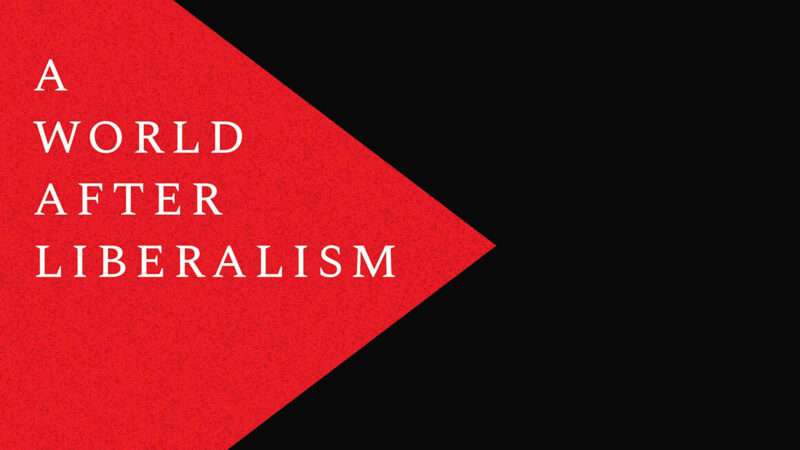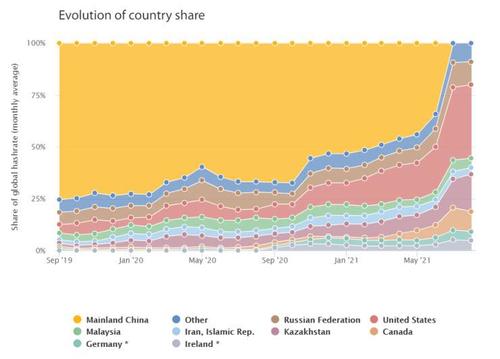Authored by Darren Smith via JonathanTurley.org,
Our host on numerous occasions makes a strong case in labeling today’s zeitgeist as “The Age of Rage”. It would certainly seem to be so if one focuses on what stereotypically comes out of the news media and political figures we lend our ears to. Yet I would go a step further and suggest the root cause of some of this rage is composed of two elements: power-lust and simple human stupidity.
I believe many people fail to recognize how intertwined is the lust for power and the enabling forces of stupidity. Stupidity can be manipulated to achieve that power. It is said that money is the blood of the powerful. Yet, why spend money when too many can be so easily controlled or recruited for free simply by instead appealing to ignorant or stupid individuals.
Both sadly and obviously however, ignorance and stupidity is not limited to the news or politics, it is manifest in human society generally. The trick is to recognize and extricate it from our lives whenever possible. So in a mostly cynical and possibly comical study of the problem, I propose there are levels and flavors of both ignorance and stupidity and to apply such a study is a first step toward minimizing its damaging potential.

If you could excuse the pretense, I might suggest this study to also be corollary to Carlo Cipolla’s “The Basic Laws of Human Stupidity“. I will then attempt to quantify Ignorance and Stupidity into both cardinal and ordinal enumerations. For those unfamiliar with Mr. Cipolla’s laws, here follows a basic primer:
-
Always and inevitably, everyone underestimates the number of stupid individuals in circulation.
-
The probability that a certain person (will) be stupid is independent of any other characteristic of that person.
-
A stupid person is a person who causes losses to another person or to a group of persons while himself deriving no gain and even possibly incurring losses.
-
Non-stupid people always underestimate the damaging power of stupid individuals. In particular, non-stupid people constantly forget that at all times and places, and under any circumstances, to deal and/or associate with stupid people always turns out to be a costly mistake.
-
A stupid person is the most dangerous type of person.
While I believe Mr. Cipolla’s laws provide some interesting insight, it treats stupidity as an absolute; that is, without a gradient as to how badly it manifests. So I offer to you, the reader, a possible method to quantify ignorance and stupidity so that you may successfully counter it in a reasonably measured fashion.
The Eight Degrees of Ignorance and Stupidity
0: Used for reference only, zero degree represents an organism that lacks any mechanism for thought or cognition, relying only on reflex or stimulus-response to changes in its environment. Plants and simple animals comprise this level. There have been debates in some circles as to whether or not plants exhibit a behavior or communicate based upon stress or environmental challenges, though it is an interesting proposal I will leave that debate to others.
First Degree Ignorance: In this example a person or animal having 1st degree ignorance is where the person due to infancy or perhaps early childhood is not physically capable of understanding the facts or information presented to them due to either the transient condition of their age or stage of development or that they lack a sufficiently matured biological structure within their brain necessary to process the information. The state for which a person or animal resides in is not one to be judged as a failure or shortcoming. It is simply the nature of the person or animal at this stage in their lifetime.
Second Degree Ignorance: The simplest definition of this degree is that the person or animal is capable of understanding the facts but is not aware of their existence. Every person or animal living has this at some time or concerning some form of information. Not all facts can ever be known. Yet it is incumbent upon intelligent organisms to manage the known/unknown deficit to be successful.
Third Degree Ignorance: At this stage the person can be taught how to recite an outcome or answer but does not fully understand the underlying reason, process, or cause for the fact or event. The knowledge the person possesses is casual and limited, and hence they can be vulnerable to situations where the outcome is defective or malformed. Yet, the person lacks the ability to correct it by repairing the mechanism.
Fourth Degree Ignorance: At this stage, the beginnings of negligence come into play, where the person or animal causes unnecessary harm to themselves or others by willfully failing attend to learning or intellectual growth required by their environment or social station.
Fifth Degree (Stupidity): Fifth degree separates human beings from most animals. While this degree’s definition relies mostly upon nomenclature, such as instinct versus cognitively derived strategy, it does require a certain intellectual threshold be met to transition from ordinary ignorance (inability to conceive a proper result), to stupidity (ability to conceive a proper result but willingly refusing to do so by disregarding the truth or the process of deriving truth). This is the most prevalent level of stupid among the general population.
The inchoate notion of recklessness incorporates into this degree.
Another form of expression within this degree is that while the person displaying stupidity might not immediately be contributing to the stupid act, it is also that the act resulted from the culmination of a series of events whereby the stupid person continually failed to exercise attention to truth and was somewhat predestined to commit to stupidity by default.
Sixth Degree (Unyielding Stupidity): At this stage the Unyielding Stupid express total unwillingness to accept any fact presented to them that is contrary to their own presumptions, regardless of even monumental levels of proof from all other sources. No amount of convincing will succeed in dislodging their false belief or facilitate their acceptance of truth. In fact, the strength in which they will hold their falsehood is nearly proportionate to the amount of effort wasted by others trying to convince them otherwise.
They also tend to accept new information as “factual” based on a very low initial bar of proof, especially if presented to them by a source they blindly assign credibility. Once falsehood becomes resident in their mind it is nearly impossible to rehabilitate by contrary, yet factual evidence. From this they incorporate falsehoods into their thinking and behavior; which of course leads to feedback loops of bad decision making and the consternation of all around them.
Normally minded individuals will certainly experience frustration and annoyance in having to be forced into proximity with the Unyielding Stupid. It is one of the rare quantifiable aspects of human emotion: the aggravation is measured as the inverse of the square of the distance the victim finds themselves from the stupid person’s mouth or keyboard. For one’s own mental wellbeing this flavor of stupid is better observed from a safe distance and at best if not at all.
As detrimental as these persons are, they fortunately lack high levels of motivation and tend to be rather benign in their ability to infect others’ tranquility of reason. This is not to say that they keep to themselves but their continual blundering tends to cap the damaging potential to those around them. Great care must be taken of course to guard at all costs against the entrance of the Unyielding Stupid into one’s life or worse, government and politics. That systemic degree of dysfunction which envelopes their lives usually serves as a moderator to their damaging ability. Theirs is a counterintuitive example of laziness being a benefit to others and society, or at least a buffer against damaging potential.
Also counterintuitively, these individuals are also easily manipulated by others who they’ve assigned expertise or kinship. They tend to place greater importance on the person or ideal they devote themselves to rather than the information or events presented by that person. So by extension they blindly follow a few because they both lack the ability to effectively think for themselves and that everyone else who might disagree is wrong.
Individuals routinely manifesting Unyielding Stupidity relegate themselves to having their sole prominent achievement as proving the Dunning-Kruger effect.
Seventh Degree (Militant Stupidity): This by far is not only the worst level of a stupid person it is also the most dangerous.
A person espousing Militant Stupidity possesses all the traits of the Unyielding Stupid, but rather than otherwise being somewhat benign, actively prosecutes against capability and intellect while forcing stupidity upon the general population. They view the notion of free thinking, scientific methodology, reason, or working debate as existential threats that must be exterminated at any cost. They have no tolerance of any idea that is not closely held by them or their cohorts and seek the maximum punishment against those they perceive as threats or unwilling to submit to idiocy. They become unhinged easily and quickly resort to anger and shouting. In fact, they seem to be almost permanently offended or outraged when dealing with those outside their inner circle. Yet just like their lesser brethren, the Unyielding Stupid, they surrender themselves into being manipulated. And to their greater detriment, their militancy facilitates their vulnerability to be prompted into action.
An auxiliary to Militant Stupidity is what is known as a “Useful Idiot”, that is a disrespected individual who can be easily summoned to blindly perform dirty-work on behalf of unscrupulous yet powerful individuals or organizations. Organizations that can thereby maintain plausible deniability of responsibility for the damage the Useful Idiot germinates. These are the most recruitable of Useful Idiot.
The Militant Stupid proffer themselves as highly intelligent and also command a delusional birthright mandate to lead others. They are completely incapable of benevolent, effective leadership yet are actually otherwise sheep who believe they are wolves or the shepherd. This narcissism is the yoke from which they can be controlled.
A good laugh can be generated by easily beckoning Useful Idiots and the Militant Stupid into identifying themselves among a crowd or audience simply by voicing a generic reference to stupid people in general. Both types of creature will be the first to jump up in outrage and either demand the speaker be punished or they will also proclaim that they are the smartest people in the room. It works nearly every time and seems to stem from a hair-trigger like proclivity on their part to be irrational and easily offended—“offended” being their preferred state of being. Deep down, there might be a faint yet secret notion within some of them that they possibly are not the smartest or brightest, but they perceive this as a vulnerability that must not be revealed or exposed by others. Consequentially, they overreact to this perceived threat by attacking others with shotgun-like precision. When having provoked the Militant Stupid into identifying themselves within the crowd, some of them become so ferociously animated in their rage and screaming that you begin to wonder when the demon possessing their body will tear its way out and unleash pandemonium upon the fleeing crowd. Pitiful and annoying perhaps, but at least the drama can certainly break the monotony of an otherwise boring town council meeting or lecture. So the useful idiot does have some utility, I suppose.
Eighth Degree (Self-Actualized Stupidity): This seemingly contradictory and oxymoronic term nomenclates a rare and paradoxical creature of bad habit, the Self-Actualized Stupid. This strangely benevolent person lends their self to a unique form of justice and that propensity, I suspect, is hardcoded into the DNA of humanity as a form of error correction; halting further replication into the biosphere. The recessive allele of this gene expresses itself as the Self-Actualized Stupid, and the dominant expresses as the Schadenfreude Trait within the realm of human thought.
The Self-actualized Stupid generally possess a higher than average level of general intelligence, a requisite attribute to construct and conduct their own demise. With them the endgame’s culmination of their stupidity ranges from an absolute reputation worthy of universal ridicule, to the other pole being a successful laureate for the Darwin Awards.
In the former, they quickly achieve fame through misfortune by committing acts or making statements that are so preposterous and exaltedly stupid they evoke thunderous levels of laughter and elation in society, vanquishing any possible taint or perceivable threat this type of stupidity might engender. Not only is their own credibility eviscerated, but the whole of society buoys itself in joy from the occasional reminder of the humor brought forth again by the replaying of such a stupid act or statement. It is akin to the stupid creating a Big Bang of a blunder on video, with YouTube as the Cosmic Microwave Background reverberating its echoes.
One shining example of a ridiculed, self-actualizedly stupid person was a man who several years ago posted a YouTube video of his challenging a large cactus to a test of wills, or quills so to speak. I do not know which species of cactus this was, but it appeared very menacing—being more bush-like than tall, while wielding a ferocious arsenal of thick, inch-and-a-half long needles more accurately described as nails. He announced his grievance to the audience. As it was the cactus, being level 0, was unable to accept such a challenge, it was nevertheless clear from the beginning who was not going to get satisfaction in this duel.
I suspect this need to battle the cactus was inspired from an earlier meme where lesser stupids posted videos of their forceful grappling of cactus houseplants with their bare hands and proclaiming supremacy in overcoming the ensuing pain. Not to be outdone, our Self-actualized Stupid candidate drove into the hinterlands in search of a more formidable opponent. Upon locating such, he positioned his car next to the cactus, climbed atop the car and belly flopped himself into a new definition of agony and suffering. In a way it appeared the cactus swallowed him whole in a manner similar to how a Venus Fly Trap ensnares its prey. Though his seconds managed to extricate him…there he lay, frozen in pain, shrieking in despair, reduced to being a human bed of nails begging to be plucked. Prior to this spectacle of foolhardiness he somehow managed to summon the inspiration to at least put on a facemask, boxing gloves, and goggles. Notwithstanding, he could not escape his nature; the recessive alleles prevailed and his stupendous stupidly neglected to realize that going into this challenge shirtless and in shorts would not end well for him. Dozens and dozens of quills remained impaled in his body, to be yanked out to the gruesome tune of his wailing. I admittedly was a bit disappointed the producers of the video did not provide a musical score to this act, perhaps some baroque chamber music with a harpsichord plucking a note for each quill extracted. A missed opportunity for sure, yet macabre and perhaps fitting I would say: for I came to realize after witnessing such a grand spectacle that this man was decidedly beyond all others.
I observed then that this person was clearly stupider than every other individual within the Animal Kingdom. No animal, not salamander, not ape, nor thing that slithers would ever commit itself to such a depravedly foolhardy game—cactus diving—at least not intentionally. An animal would at best be sufficiently cunning to avoid such cactuses or at least if it had never previously encountered such it would approach cautiously. At a minimum, after perhaps a slight stinging to the snout the experience would impart forever in the animal’s mind a thing to be avoided. Yet it takes a human being, having a brain capable of both driving a car to approach this cactus and a mind stupid enough to deliberately leap into it with the hopes of generating more likes on a YouTube.
I suppose he succeeded in affording several schadenfreude-driven people free entertainment for a couple minutes. But more importantly the damage he did was his own to suffer and he set a precedent for lesser stupid people not to follow in his manner. For even they would break from their tradition of self-described omnipotence and recognize this level of stupidity was beyond theirs to attempt. The wider audience…they were at least offered a fleeting distraction from the constant strain of having to deal with the malignant banality of the Unyielding and Militant Stupid otherwise infesting life.
On balance I would be remiss to not offer a degree of respect of the Self-Actualized Stupid. It is difficult, if not impossible for ordinary people, and even greatly creative thinkers, to convincingly mimic the skill level and artistic expression commanded by the Self-Actualized Stupid. We are constrained by our own sense of self-preservation and reason, and thus our capacity to conjure the ideas and thoughts of these savants will never compare. They on the other hand are unbound by caution and reasonability, modern-day Icaruses to the Suns of Social Media. Best of all, they are benign.
So I submit for your review the Eight Degrees of Ignorance and Stupidity. May God have mercy on our souls.














